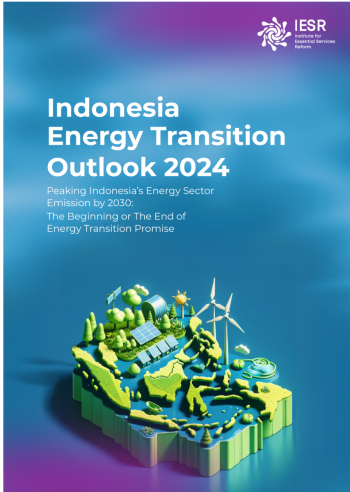Peaking Indonesia’s Energy Sector Emission by 2030: The Beginning or The End of Energy Transition Promise
In 2023, Indonesia’s energy transition began to gain momentum. The Ministry of Energy and Mineral Resources has started inter-ministerial discussions to prepare a roadmap for phasing out coal by 2050. JETP CIPP has launched an agreement for the early retirement of the Cirebon PLTU. The National Energy Board has updated the 2014 National Energy Policy to align with the zero emissions target by 2060.
Two state-owned companies, PLN and Pertamina, are also taking concrete steps towards the energy transition by setting ambitious renewable energy targets and investing in new projects. In addition, a growing number of companies are demanding clean electricity and investing in renewable energy. However, the transition in the transportation and industrial sectors is still in its early stages. A lack of leadership, urgency, and direction from the top has slowed the pace of decarbonization in these two sectors.
IESR is pleased to present IETO 2024, which documents the progress of the energy transition in the power, industry, transportation, and building sectors and their enabling environment: policy, regulation, finance, clean technology adaptation, and public and local participation. IETO 2024 is the most comprehensive report yet, the result of more than 7 months of collaboration and research by 16 young and highly motivated IESR analysts.
Although Indonesia’s recent energy transition looks bleak, we should celebrate every small step the country has taken to reduce fossil fuel use and replace it with clean energy to protect future generations from the catastrophic consequences of climate change.
Indonesia Energy Transition, Energy Sector Emissions, Zero Emission Target 2060, JETP CIPP, PLTU Cirebon, PLN, Pertamina, Renewable Energy, Sustainable Transportation, Industrial Decarbonization, IETO 2024, IESR

